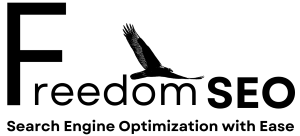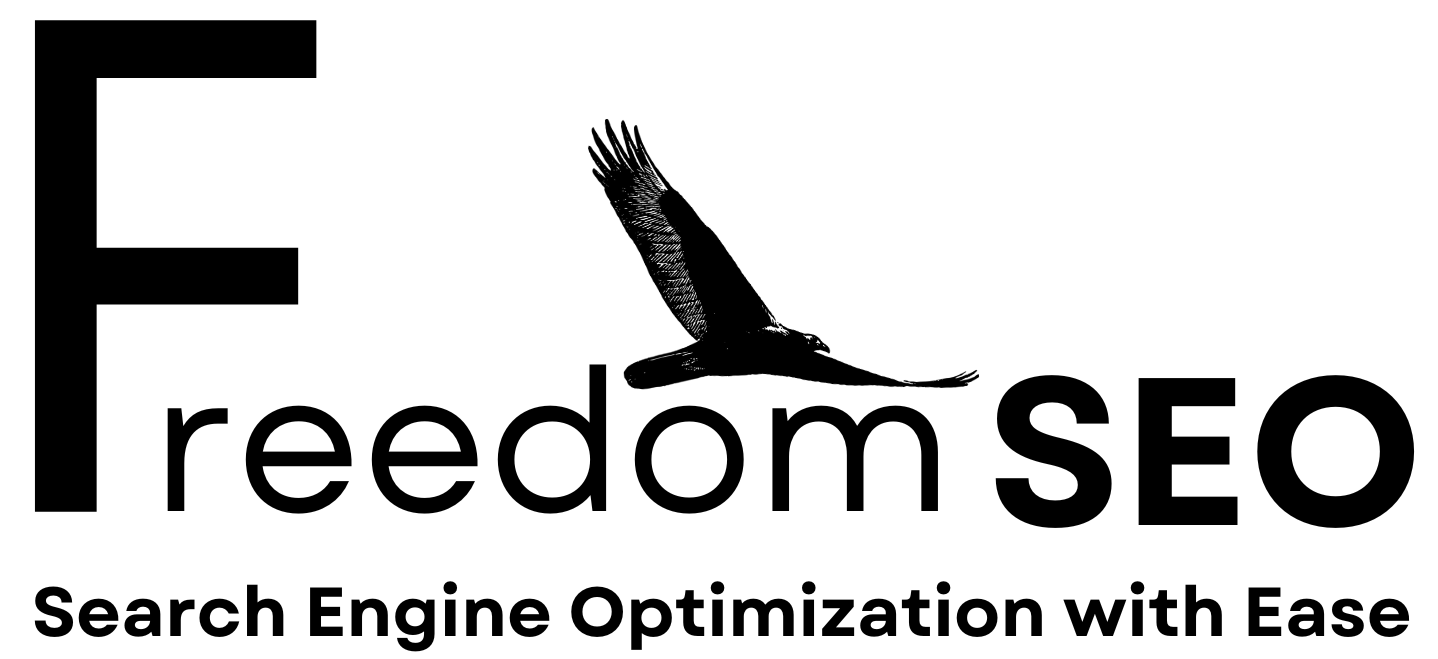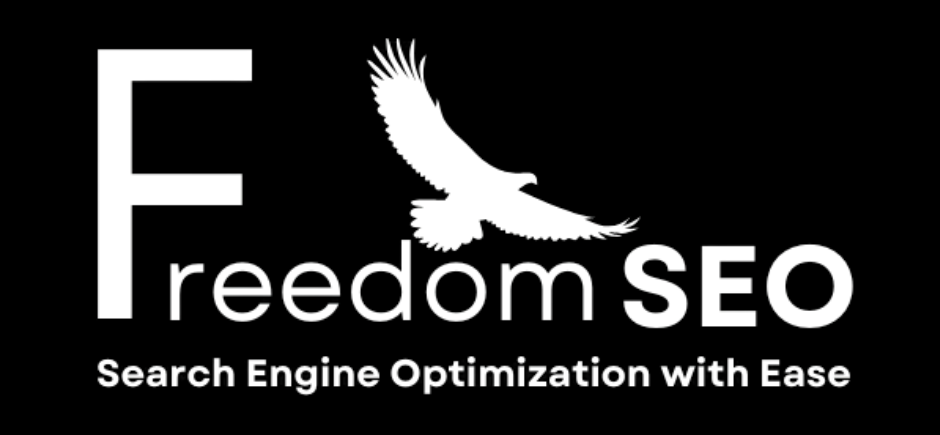Writing SEO Friendly Content: 2025 Tips for Canadian DIY SEO

Canadian businesses are racing to stand out online, and the rules for writing SEO friendly content keep getting tougher. Here’s the shocker. Over 70 percent of high-ranking pages in 2025 will rely on firsthand experience and real-world expertise, according to the latest studies. It might sound surprising, but technical tweaks alone are no longer enough. Real results now come from content that’s both rich in local context and fine-tuned for how people actually search.
Table of Contents
Quick Summary
| Takeaway | Explanation |
|---|---|
| E-E-A-T Framework | Content must demonstrate Experience, Expertise, Authoritativeness, and Trustworthiness to rank highly in search engines. This involves providing firsthand insights and credible references. |
| Focus on User Intent | Develop content that anticipates user questions and provides comprehensive, actionable information to satisfy their needs, creating a seamless experience from search to answer. |
| Optimize for Local Relevance | Incorporate region-specific terms and local context in content to resonate with Canadian audiences, enhancing engagement and searchability. |
| Technical Optimization | Ensure responsive design, fast load times, and structured data implementation to meet both user experience and search engine requirements effectively. |
| Utilize SEO Tools | Leverage tools like Semrush and Google Trends for keyword research, Clearscope for content optimization, and Google Search Console for performance tracking to enhance content quality. |

What Makes Content SEO Friendly in 2025
Writing SEO friendly content in 2025 requires a sophisticated approach that goes beyond traditional keyword stuffing and basic optimization strategies. The digital landscape demands a more nuanced understanding of how search engines evaluate and rank content.
The E-E-A-T Framework: The New Content Quality Standard
Search engines have evolved to prioritize content that demonstrates genuine expertise and authentic experience. The expanded E-E-A-T framework (Experience, Expertise, Authoritativeness, and Trustworthiness) has become the cornerstone of content evaluation. According to Search Engine Land , content creators must now provide deep, verifiable insights that showcase real-world knowledge.
To meet these standards, content must:
- Demonstrate Firsthand Experience : Include personal insights, case studies, and real-world examples
- Showcase Genuine Expertise : Provide in-depth, well-researched information from qualified sources
- Build Authoritative Credibility : Include expert citations, professional credentials, and verifiable references
Below is a summary table that breaks down the E-E-A-T framework components and their key requirements for SEO-friendly content in 2025.
| E-E-A-T Component | Key Requirement |
|---|---|
| Experience | Share firsthand insights, case studies, real-world examples |
| Expertise | Offer in-depth research and knowledge from qualified sources |
| Authoritativeness | Cite experts, credentials, and professional references |
| Trustworthiness | Use verifiable information and credible citations |
Technical Optimization Meets Human-Centric Content
In 2025, writing SEO friendly content requires a delicate balance between technical optimization and human-focused storytelling. Digital Pros Research highlights the critical importance of mobile-first design and structured data implementation. This means creating content that not only reads naturally but also provides clear signals to search engine algorithms.
Key technical considerations include:
- Responsive Design : Ensuring content displays perfectly across all devices
- Structured Data Markup : Implementing schema that helps search engines understand content context
- Page Performance : Maintaining fast load times and smooth user experience
Intent-Driven Content Strategy
Modern SEO demands a laser-focused approach to user intent. Search engines have become extraordinarily sophisticated at understanding the underlying motivation behind search queries. Elevato Digital emphasizes that successful content must go beyond surface-level information and directly address user needs.
This means developing content that:
- Anticipates user questions
- Provides comprehensive, actionable information
- Creates a seamless journey from search query to satisfactory answer
Writing SEO friendly content in 2025 is no longer about gaming the system but creating genuine value. It requires a holistic approach that combines technical precision, authentic expertise, and a deep understanding of user needs. By focusing on quality, experience, and technical optimization, content creators can develop material that not only ranks well but truly serves their audience.
Top DIY SEO Writing Tips for Canadians
DIY SEO writing requires strategic skills and a systematic approach that goes beyond basic content creation. Canadian businesses looking to improve their online visibility need practical, actionable strategies that align with modern search engine optimization techniques.
Keyword Research and Strategic Placement
Effective SEO writing starts with comprehensive keyword research tailored to the Canadian market. According to Enago Academy , strategic keyword incorporation across multiple content elements dramatically improves discoverability. Canadian writers should focus on:
- Local Keyword Targeting : Incorporate region-specific terms and Canadian English variations
- Long-Tail Keyword Integration : Use specific, conversational phrases that reflect natural search patterns
- Contextual Keyword Placement : Embed keywords naturally within headings, paragraphs, and image captions
Understanding search intent becomes crucial. Keywords must seamlessly blend into content, providing genuine value rather than appearing forced or artificial. This approach ensures both search engine algorithms and human readers find the content engaging and relevant.
Content Structure and Readability Optimization
Clear, structured content significantly impacts SEO performance. Government Writing Guidelines emphasize the importance of creating readable, well-organized content. For Canadian DIY SEO writers, this means:
- Logical Heading Hierarchy : Use H1, H2, and H3 tags to create a clear content structure
- Concise Paragraph Design : Keep paragraphs short and focused, typically 3-4 sentences
- Plain Language Approach : Avoid complex jargon, prioritizing clarity and accessibility
Additionally, breaking content into digestible sections helps readers navigate information more efficiently. This user-friendly approach signals to search engines that your content provides a positive reading experience.
Link Building and Content Credibility

Building a robust linking strategy enhances content credibility and search rankings. Linking Best Practices recommend a balanced approach to internal and external linking. Canadian writers should:
- Internal Linking : Connect related content within your website, creating a comprehensive information network
- External Authority Links : Reference reputable Canadian and international sources
- Anchor Text Optimization : Use descriptive, relevant text for hyperlinks
By implementing these strategic linking techniques, DIY SEO writers can demonstrate content authority and provide additional value to readers. Each link serves as a credibility signal, helping search engines understand the context and reliability of your content.
Successful DIY SEO writing in Canada requires a holistic approach. It combines technical optimization, user-focused content design, and strategic keyword utilization. Writers who master these skills can create compelling content that not only ranks well but genuinely serves their target audience.
Remember, SEO is an ongoing process. Continuously monitor your content performance, adapt to algorithm changes, and remain committed to delivering high-quality, informative material that resonates with Canadian readers.
Optimizing Blog Posts for Canadian Searchers
Optimizing blog posts for Canadian searchers requires a nuanced approach that goes beyond generic SEO strategies. Understanding the unique digital landscape and search behaviors of Canadian audiences is crucial for creating content that resonates and ranks effectively.
Crafting Locally Relevant Content
Successful blog optimization starts with understanding the specific needs of Canadian searchers. University of Victoria Web Standards emphasizes the importance of creating content that speaks directly to local audiences. This means incorporating:
- Regional Language Variations : Use Canadian English spelling and terminology
- Local Context : Include references to Canadian cities, provinces, and cultural nuances
- Relevant Local Examples : Develop content that reflects Canadian business practices and consumer interests
Below is a checklist table summarizing the must-have elements for locally relevant SEO blog posts for the Canadian market.
| Local Content Element | Included? |
|---|---|
| Canadian English spelling | Yes |
| Regional references (cities/provinces) | Yes |
| Local business/culture examples | Yes |
| Audience-specific terminology | Yes |
| Canadian search intent alignment | Yes |
By tailoring content to the Canadian market, writers can create more engaging and searchable blog posts that connect authentically with local readers. This approach signals to search engines that the content is specifically designed for Canadian searchers.
Technical Optimization for Enhanced Visibility
Technical elements play a critical role in blog post optimization. Western University Communications highlights the importance of mobile-friendly design and performance optimization. Canadian bloggers should focus on:
- Responsive Design : Ensure blog posts display perfectly across all devices
- Page Speed Optimization : Minimize loading times and improve overall site performance
- Structured Data Implementation : Use schema markup to provide clear content signals
Moreover, Canadian Government Digital Resources recommend implementing Speakable schema to enhance voice search compatibility. This technical approach helps search engines better understand and potentially feature your content in voice search results.
Content Depth and Search Intent
Modern SEO demands more than surface-level information. Canadian searchers expect comprehensive, authoritative content that thoroughly addresses their specific queries. This means:
- In-Depth Research : Provide comprehensive coverage of topics
- Expert Insights : Include original research, expert quotes, and data-driven information
- Clear Problem-Solving Approach : Address user questions directly and comprehensively
Effective blog posts should anticipate and answer the specific questions Canadian searchers are likely to ask. This approach requires going beyond basic information and providing genuine value through detailed, well-researched content.
Optimizing blog posts for Canadian searchers is a sophisticated process that combines local understanding, technical precision, and content depth. Writers must create material that not only meets search engine requirements but also genuinely serves the Canadian audience. By focusing on local relevance, technical optimization, and comprehensive content, bloggers can develop posts that stand out in the competitive Canadian digital landscape.
Remember that SEO is an ongoing journey. Continuously monitor your blog’s performance, stay updated with search engine algorithm changes, and remain committed to creating high-quality, locally relevant content that truly resonates with Canadian readers.
Useful Tools for Writing SEO Friendly Content
Creating SEO friendly content requires more than just writing skills. Modern content creators need a strategic toolkit to optimize their writing, analyze performance, and enhance search engine visibility. Understanding and leveraging the right tools can dramatically improve content quality and search rankings.
Keyword Research and Content Planning Tools
Effective SEO writing begins with comprehensive keyword research and strategic content planning. Semrush offers robust keyword discovery features that help writers identify high-potential search terms specific to Canadian markets. Key capabilities include:
- Keyword Volume Analysis : Understand search frequency for specific terms
- Competitive Keyword Insights : Discover gaps in existing content
- Long-Tail Keyword Suggestions : Uncover nuanced search phrases
Additionally, Google Trends provides valuable insights into regional search behaviors, allowing Canadian content creators to align their writing with current search interests and seasonal variations.
Below is a table summarizing some of the essential SEO tools mentioned in the article and their primary features or use cases for Canadian content creators.
| Tool Name | Primary Use/Feature | Canadian Relevance |
|---|---|---|
| Semrush | Keyword research, competitive analysis | Finds Canadian-specific search term opportunities |
| Google Trends | Regional search behaviour insights | Tracks trends for Canadian audiences |
| Clearscope | Content optimization help | Improves content comprehensiveness for SEO |
| MarketMuse | Topical depth suggestions | Enhances relevancy for Canadian topics |
| Google Search Console | Performance tracking, technical audits | Monitors visibility among Canadian searchers |
| Authorea | Collaborative writing & research | Supports well-researched, credible content |
| Semantic Scholar | Citation and research database | Strengthens authority with credible references |
Content Optimization and Writing Assistant Tools
Writing tools have evolved to provide real-time SEO guidance and content improvement suggestions. Clearscope and MarketMuse offer advanced content optimization platforms that analyze writing for SEO potential. These tools help writers:
- Analyze Content Comprehensiveness : Identify potential content gaps
- Suggest Semantic Keywords : Recommend related terms to enhance topical depth
- Provide Readability Scores : Ensure content remains accessible and engaging
Authorea , though primarily an academic writing tool, offers collaborative features that can help teams refine and optimize content collaboratively, ensuring high-quality, well-researched material.
Performance Tracking and Analytics Tools
Understanding content performance is crucial for continuous SEO improvement. Google Search Console provides free, comprehensive insights into how search engines view and rank your content. Writers can leverage tools like:
- Search Performance Reports : Track keyword rankings and impressions
- Click-Through Rate Analysis : Understand how users interact with your content
- Mobile Usability Insights : Identify potential technical optimization opportunities
Semantic Scholar offers advanced research and citation tracking, which can be particularly useful for content creators seeking to incorporate authoritative references and enhance content credibility.
Successful SEO writing in 2025 demands a holistic approach. By combining strategic tool usage, continuous learning, and a deep understanding of search engine algorithms, content creators can develop materials that not only rank well but genuinely serve their audience’s information needs.
Remember, tools are enablers, not replacements for quality writing. The most sophisticated SEO tools cannot compensate for poorly constructed, unengaging content. Always prioritize creating valuable, user-focused material that addresses genuine search intents and provides comprehensive, actionable information.
Frequently Asked Questions
What is the E-E-A-T framework in SEO?
The E-E-A-T framework stands for Experience, Expertise, Authoritativeness, and Trustworthiness. It emphasizes the importance of content that demonstrates genuine knowledge and firsthand experience, which is key for high search engine rankings in 2025.
How can I conduct effective keyword research for my Canadian audience?
To conduct effective keyword research, use tools like Semrush and Google Trends to identify local keywords, long-tail phrases, and regional search behaviors specific to Canadians. Incorporate Canadian English variations to enhance relevancy.
What are some tips for optimizing blog posts for Canadian searchers?
To optimize blog posts for Canadian searchers, focus on locally relevant content by using Canadian English spelling, regional references, and concrete local examples. Additionally, ensure your blog is technically optimized for mobile devices and fast load times.
How do I improve my content’s readability for SEO?
Improve content readability by using a clear structure with headings, short paragraphs, and plain language. Aim for a logical flow that allows readers to easily navigate information, which will also signal to search engines that your content is user-friendly.
Transform Your SEO Efforts into Top Google Rankings With True Canadian Expertise
Are you finding it hard to keep up with the ever-changing demands of writing SEO friendly content in 2025? Many Canadian businesses struggle to move beyond keyword stuffing and generic advice. You might be feeling overwhelmed by technical SEO, E-E-A-T requirements, or the challenge of making your content stand out for local searches. If you want to blend firsthand expertise, local relevance, and smart optimization, but keep ending up buried on Google, you’re not alone.

Take the next step by teaming up with a results-driven Canadian SEO agency. At Freedom SEO , we put your business front and centre by:
- Applying proven strategies that follow E-E-A-T and user intent best practices
- Creating content and websites that connect with real Canadian searchers
- Getting our clients ranked in the top 3 positions on Google Ready for faster growth and guaranteed visibility? Start by visiting our landing page and book a free consultation today. See how real Canadian experience translates to meaningful results for your business this year.

















